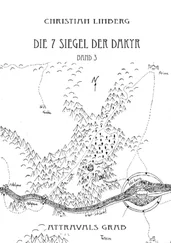Riojas could conduct it the way war was supposed to be conducted. When the USDF wanted to keep campesino villages from harboring FARC guerrillas—not that they had, not that they’d even thought about it, just that they might —they’d pick twenty campesinos at random. You, you, and you. They’d make them dig their own graves, then force their fathers or brothers or uncles to execute them. Whoever refused, joined them in the pit. This was the kind of muscular teaching a simple campesino could understand.
Claudia was captured by the USDF two years after she walked out of that bar.
The boy from the university called and told them.
After Galina had dropped the phone to the floor and stared at it as if it were something alien, after she had reluctantly picked it up and found her voice, she asked the boy if her daughter was dead. Only it wasn’t her voice—it sounded like someone years older.
No, he said. She’d been captured alive.
He didn’t add that it wouldn’t be for long.
He didn’t have to.
For one entire year Galina assumed Claudia was dead.
She thought of having a proper funeral but was always dissuaded at the last moment. Sometimes it was something she found as she cleaned the house. She cleaned all the time now. Ceaselessly, relentlessly, religiously . She’d trudge back from caring for someone else’s daughter or son and immediately grab a mop, a sponge, a dustpan, desperately clinging to routine as a way to stave off thoughts of suicide. One day while vacuuming under Claudia’s desk, she found a birthday card an eight-year-old Claudia had drawn for her in school. A stick-figure mommy holding a stick-figure baby in her arms. Te adoro, the baby whispered.
Galina said not yet. The funeral would wait.
Sometimes memory would be triggered by something completely ordinary. Stuffing a bedsheet into the washer and suddenly remembering Claudia’s first period, how Galina had stood flustered and embarrassed before Claudia’s soiled bed one morning before middle school. Even as her daughter remained oddly composed, even comforting. I know what it is, Mama—it means I can have grandbabies for you.
Galina pushed the funeral off again.
Everything that follows, Galina would find out later.
Claudia was captured in the town of Chiappa. They’d sent her there for supplies, and someone spotted her. Stories about her had been circulating for months. The beautiful university girl with the revolutionary fever. Someone was sitting and waiting for her. He followed her from town, called in reinforcements. When Claudia got back to the ravine where her fellow soldiers in the war against capitalism were holed up and waiting, a USDF brigade was already circling in for the kill.
When she opened the flap of their makeshift tent, just a few shirts strung together to keep out the rain, bullets rained down on them instead.
Three of the guerrilleros were killed. Two made it back through the jungle, one of them dragging a shot-up right leg that was later amputated.
Why wasn’t Claudia killed like the others?
Maybe because they were told not to.
Because Riojas had heard the stories and was curious to see her in the flesh. More than curious. Desirous .
He left a state dinner in Bogotá that night. Someone whispered into his ear, and he flew by helicopter to a hacienda in the north. When he entered the room where Claudia was on her knees, both hands tied tightly behind her back, he was still wearing his tuxedo.
He took his time. Examining her, the way you appraise horseflesh or hunting dogs. Apparently, he had plenty of both.
He must’ve liked what he saw.
You can imagine what happened during the next two days. You can close your eyes and say a prayer and peek. Riojas personally took charge of her interrogation. She came very close to dying. She prayed for it, hoped to God that the next time he beat her into unconsciousness she wouldn’t wake up. Despite having joined the army of the godless, Claudia still believed . Somewhere inside herself she retained her Catholic core. She spoke to it now.
She’d heard the stories: prisoners pushed out of helicopters, fed to the tigers. It would happen to her.
But two days turned into three.
Then four.
An entire week passed.
No one came to take her off in a helicopter, or for a trip to the tiger cage. Yes, there were tigers. She squinted out her window through nearly beaten-shut eyes and saw them pacing back and forth like sentries. In the afternoon someone threw a live pony into the cage and the tigers ripped its throat out.
Then something odd happened.
One day Riojas came in and didn’t beat her. He asked her something instead.
To open her legs for him. Politely requested it. Claudia said no, shut her eyes, waited for a fresh onslaught of pain.
Riojas left the room.
The next time he came in, he was bearing gifts.
French lingerie.
Riojas asked her to try it on for him. Claudia said no.
Again he didn’t touch her.
By the third time, Claudia began to understand something.
She wasn’t experienced with men; she’d had a casual boyfriend or two.
She could tell when someone was in love.
It had happened before—boys in primary school, then university, who’d begin acting stupid around her, wholly outside the realm of normal behavior.
It became increasingly clear that Riojas wasn’t going to kill her.
He was going to court her.
Why?
Maybe because Claudia was Claudia.
Because he coveted what he couldn’t destroy. Love is strange— isn’t that what the songs say?
At some point Claudia began to understand that this adoration might save her. Maybe not forever. Just for a while. Somewhere she stopped wanting to die and began wanting to live.
When he asked her a fourth time to dress in French lingerie, to turn around and please kneel on the bed for him, she said yes. She understood it wouldn’t do to always deny him. Eventually, he’d tire of that. Then he’d tire of her.
There’s something truly pathetic about a captor falling in love with his prisoner. Claudia needed to use that to her advantage. She needed to hold something back. To sometimes give in, but always deny the one thing he wanted more than anything else. Reciprocity.
Her heart —as the poets say.
She began to dine with him, at an actual dinner table . Set with gleaming silver, translucent china. Dressed up in whichever five-hundred-dollar dress he’d picked out for her. Sometimes she’d wear something else, deliberately ignoring his wishes. He’d throw tantrums that subsided only after most of their dinner had ended up on the floor.
He delighted in telling her what he’d done to other women. Women who’d crossed him. That singer—Evi, the pop star who’d thought she could carry on with a musician while seeing him .
I went up to her apartment with my personal doctor. I held her down while he cut out her vocal cords, then I sat there and watched as he sewed her up. She no longer sings very well.
He was trying to evoke fear and obedience. Claudia would act bored. She was convinced if she did the opposite of what he expected, she could survive another day.
He loosened the leash a little.
She was allowed outside—always accompanied by one of his goons. She listened. She observed. She memorized things.
Where were they? She smelled salt in the air. Not all the time, just on the days when the wind blew hard from the north. They had to be on the coast. Even so, they were hopelessly isolated. There wasn’t a single roof in any direction. Just lush palms, overgrown ferns, tumbling birds-of-paradise. Wild parrots serenaded her on her walks around the hacienda.
Читать дальше












